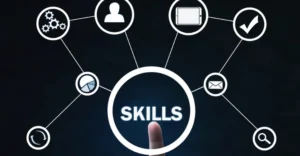Generation Z, born roughly between 1997 and 2012, is not just entering the workforce; they are actively redesigning it. Having grown up amidst economic volatility, rapid technological change, and a constant flow of information, they bring a distinct, pragmatic, and purpose-driven perspective.
This demographic shift is forcing organizations to re-evaluate long-standing workplace norms. To attract and retain this cohort, businesses must move beyond traditional perks.
They need to genuinely embed Gen Z’s core values-meaning, flexibility, and well-being-into their culture and employer branding.
The New Balance: Prioritizing Life Over Work
The era of “hustle culture” is fading. Gen Z views work as one component of life, not the defining factor. For them, work-life balance and flexibility are non-negotiable.
- Flexibility is Foundational: Gen Z strongly favors hybrid or fully remote work. Approximately 70% prefer this model, validating their digital-native belief that productivity is location-independent.
- The Mental Health Mandate: This generation is vocal about well-being. Nearly half of Gen Z report constant stress, expecting employers to provide genuine support like mental health days and flexible schedules.
- Boundaries are Strong: Gen Z is defining clear limits to prevent burnout. They experience peak burnout earlier, around age 25, and are highly resistant to constant connectivity outside of work hours.
From Paycheck to Purpose: The Quest for Meaning
While compensation and advancement remain important, Gen Z ties their professional experience to the organization’s greater mission. They want their work to matter.
- Value Alignment is Key: Gen Z actively seeks employers with matching values. They are drawn to companies that take clear, authentic stands on social, ethical, and environmental issues.
- Impact is the New Reward: Purpose is a baseline expectation, not a benefit. Many Gen Z employees see corporate volunteering and social impact as part of their professional lives. Workplace surveys show volunteers report a stronger sense of belonging.
- Diversity and Inclusion: As the most diverse generation, Gen Z demands an inclusive environment. Studies confirm that a company’s commitment to Diversity, Equity, and Inclusion (DEI) is a crucial factor when choosing an employer.
Related Posts
The Need for Speed: Advancement and Feedback
Gen Z thrives on real-time information and immediate feedback, a habit shaped by digital communication. They view professional growth not as a slow climb, but as a continuous loop of learning.
- Continuous Feedback Culture: Unlike the annual review model, Gen Z expects timely, continuous input on performance. A feedback-rich culture is essential for their engagement and transparency enhances job satisfaction.
- Rapid Growth Expectations: This generation seeks fast career progression. Some research suggests many desire a promotion within 18 months. They demand clear pathways and prioritize efficient, effective work.
- Learning and Certification: Gen Z highly values ongoing professional development. A majority view learning as key to a successful career. Organizations must offer robust training and certification opportunities to meet this need.
The Digital Mindset and Evolving Leadership in Workplaces
Gen Z are digital natives, and their comfort with technology dictates their expectations for the workplace environment.
- Tech-Forward Environments: They expect technology to simplify work and enhance safety. They embrace automation to free up time for creative problem-solving.
- Pragmatic and Collaborative: Gen Z values teamwork and open environments. They will question old processes to understand why things are done.
- Authentic Leadership in workplaces: They seek empathetic and accessible Leadership in workplaces. Leaders must demonstrate transparency and support for well-being, moving beyond a results-only focus.
A Call for Adaptive Workplace Surveys
The rise of Gen Z is not a temporary trend; it’s a permanent shift in what people expect from professional life. Organizations must adapt, or they risk losing a significant portion of their future talent. For HR leaders, this requires a fundamental change:
- Redefine Flexibility: Move beyond hybrid policy to true autonomy over work schedules.
- Embed Purpose: Make social and ethical commitments visible, measurable, and authentic.
- Invest in Well-being: Treat mental health support as essential infrastructure, not a simple perk.
- Accelerate Growth: Implement continuous feedback and fast-track opportunities for learning and certification.
By responding to these demands, businesses can create a modern, human-centric environment that secures the engagement and productivity of the next generation of professionals.









